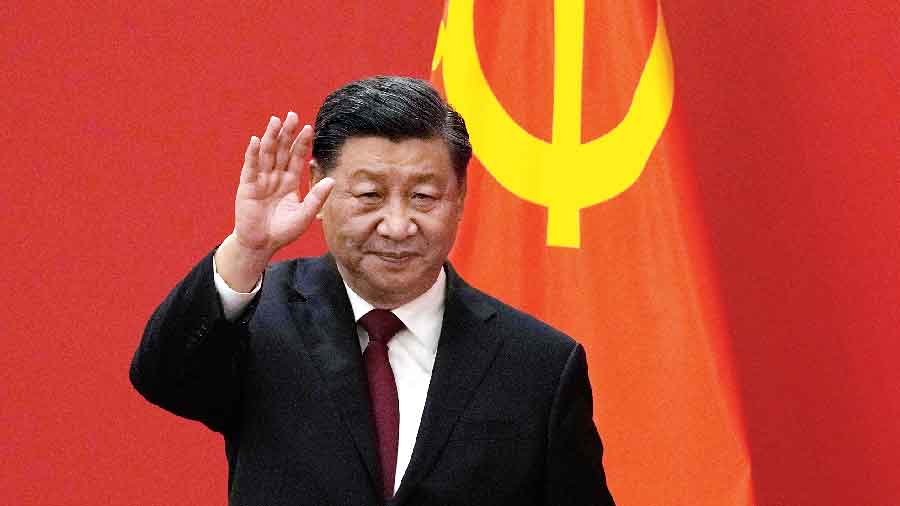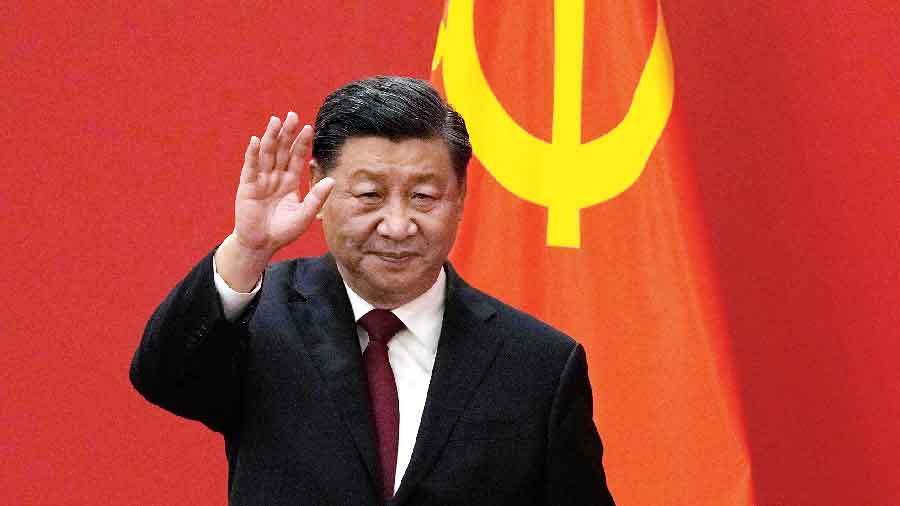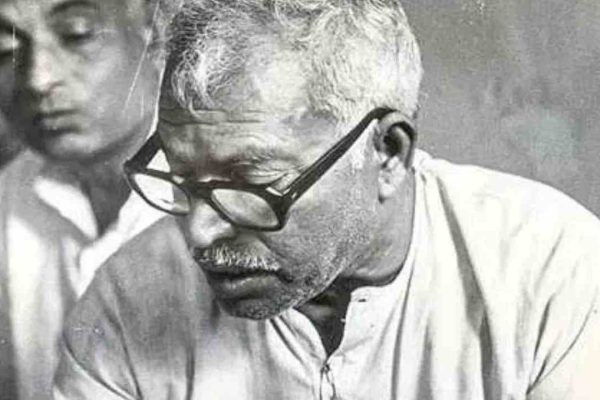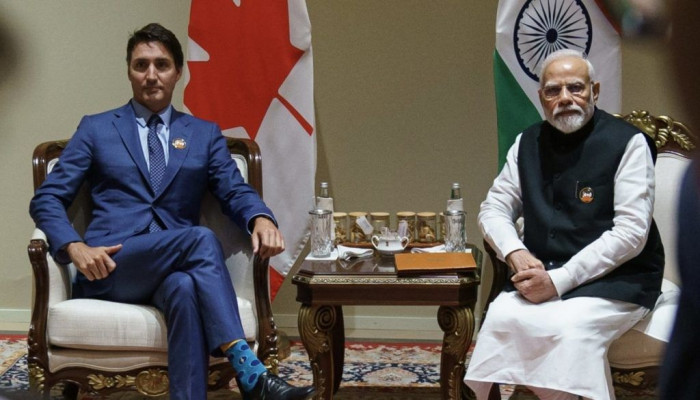Last year Indian Air Force Chief said that Pakistan is changing its strategy and had indicated a new developing strategy which is denoted by “Triple R”. The triple R here means rearticulate, reorganize and relocate. The changing military strategy of Pakistan is a result of certain geopolitical changes or opportunities which began forming after Taliban takeover last year. However, with FATF's exit recently, It may solidify and New Delhi has to push up its guard to deal with changing Pakistan’s conventional and unconventional mixed gameplan.
The Changing Strategy
There is not one regional or global level development but multiple developments spined in the past year which kept the matchstick burning in Islamabad. The first one is the fall of Kabul. Islamabad saw Kabul's fall as an opportunity to attain strategic depth against India. Second growing Pak-China nexus. Since the past year since the pandemic has begun and China’s exercising provocative and aggressive maneuvers at the borders to create pressure on the other front which Pakistan saw as an opportunity to create two-front tensions for India. The growing Pak-China cooperation had also resulted in breaking some defense-related deals with Pakistan like Submarines and drones[ii]. Few instances of build-up in the PoK like infrastructural and military are also some visible signs of Pakistan China increasing cooperation[iii] and Pakistan’s intent to grow its capabilities with the help of China. Third is the recent exit of Pakistan from FATF which would be instrumental in giving some financial openings to Pakistan’s deep state. Things would be worse if gets added with the Chinese flavor of cooperation. Nepal elections have concluded, and though the present PM Sher Bahadur has emerged as the winner but K.P Sharma’s deceitful political tactics may complicate things while forming and stabilizing the government and that might not be good news for New Delhi.[iv] As an obvious implication, crisscrossing of proxy dealings and terror funding viz-a-viz Nepal would surely get a boost. China’s political lobbying would also get a good opening in Kathmandu. The recent appointment of Asim Munir as Pak Army chief who is called “Mulla General” because of his radical approaches moreover, he is a straight arrow who knows how to sharpen the tip of the knife and hence New Delhi has the watch the Af-Pak region with more caution. Both hostile neighbors, one is freed from long-standing shackles and the other is patiently waiting to assert its political and military charm. Islamabad’s comfortable repositioning and Beijing’s wait for an opportune moment is something for which New Delhi has to watch out in the coming time. At the global level, the Central Asian region would again come under Pakistan-China strategic considerations to squeeze New Delhi’s footprints. Earlier, Islamabad’s regional and global syncing with China was disrupted with a series of sanctions and watch on Pakistan which was further at least to some extent still is complemented by its own issues at home. However, by freeing a tied hand, Islamabad would soon create something out of its franklin monster menu and revamp defunct unconventional and conventional machines against India. Perhaps, it would have consonance with what the IAF chief last year said about the “Triple R strategy”. The Triple Rs- Rearticulation, Reorganize and Relocation becomes a key here for Pakistan to revamp its military and operational postures against India especially involving China factor in it. It is also imperative to understand what exactly this acronym means:
Decoding Triple R
The Triple R stands for Rearticulation, Reorganization, and Relocation
Rearticulate- ReRearticulatehe the older conventional and unconventional strategies with new defense deals and military equipment to increase and upgrade operational capabilities against India. Given the fact that the Chinese are increasing their strategic acumen in the Central Asian region with Russia which would eventually exacerbate Pak-China diplomatic friendhood in the Central Asian region to squeeze New Delhi’s rapid efforts of increasing diplomatic influence in the Central Asian region. On the unconventional front- Pakistan may increase their attempts to weave out new terror outfits in deep inside or clandestine locations in Afghanistan against India(a part of strategic depth strategy), revamping terror modules and making new ways for crisscrossing borders for infiltration and subversion purposes. Pakistan would not leave any stone unturned in articulation, especially in its terror networks and covert operations. Small-scale attacks in Jammu&Kashmir are quite visible in the recent past. Though, given some contradictory or adverse developments in Af-Pak region- Taliban and Pakistan army faceoff along with TTP threat, Islamabad may approach with caution that might delay some plans but cannot be ignored at New Delhi’s end.
Reorganize- After rearticulating its conventional and unconventional arms, Pakistan will look at to reorganize its military presence at the borders. Strategically, Pakistan seems to have begun with it by starting a new airport at PoK which may have involved some reorganization work of the military or strengthening of military presence along with terror outfits. It can be said that Infrastructural developments may see a rise in the coming time.
Relocate- Relocation works parallelly with reorganizing work. As indicated above that Pakistan may weave terror outfits, it is possible that Pakistan’s relocate its terror camps near or deep inside Afghanistan or scatter them deeper to avoid detection. Relocation also involves the relocation of military assets near borders which may involve Chinese military assets to gain strength at the war and operational fronts.
Pakistan’s Revival Exercise And A Chinese Trap
Pakistan’s exit from FATF is most likely put Pakistan in a revival exercise with China’s backing. This exercise indicates that Pakistan would not leave any stone unturned in re-establishing the sync with China and playing diplomatic circus at regional and global levels especially against India. Islamabad more or less would now concentrate on reviving and re-strengthening the military structure. Pakistan a few days back made some strong choices of bringing Asim Munir as Pakistan Army Chief, this makes the picture slightly clear that Pakistan will go on to make some more choices which is absolutely hard. Islamabad would also start rapid efforts in making its military and national security apparatus capable to capitalize on possible opportunities emanating from the current geopolitical landscape. The indication is also towards possibilities of serious threats emanating out from Pakistan’s re-strengthening exercise at the unconventional front because Pakistan uses an unconventional front maximum against India. The recent clash at Tawang, Arunachal Pradesh indicates that China is planning to lock India in a protracted conflict inspired by Mao’s strategic thinking at the borders to hinder its resources capitalization and utilization at a juncture where India has assumed immense strategic significance and G-20 is at New Delhi’s doors, here Beijing also aims to disturb India’s external and internal strategic environment. In such circumstances, New Delhi has to develop a long view of the strategic realities of a Chinese trap and Pakistan’s nefarious intentions to flare up the cross-border terrorism post their FATF exit. It is now required to boost all fronts(conventional and unconventional) increasing the number of fleets and military equipment and defence procurements to make our war capabilities superior and strong. Maybe New Delhi has begun spreading its vigilant web across the South Asian region and deploying effective deterrence and combative countermeasures to thwart the Chinese trap, the recent visit of R&AW Chief to Sri Lanka to caution and discuss security and strategic issues especially on the issue of Chinese research ships which are most likely meandering in the Indian Ocean which led to the postponement of our ballistic missile test. This indicates at the New Delhi’s part that New Delhi has started its heavy brainstorming to counter a slightly relaxed Pakistan and impatient China.








 OpinionExpress.In
OpinionExpress.In















Comments (0)